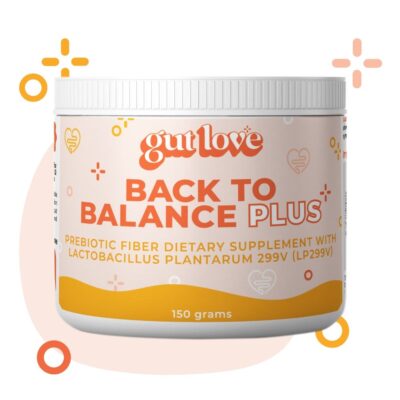Chronic fatigue is a common symptom in patients with inflammatory bowel disease (IBD), such as Crohn’s disease, Ulcerative colitis and Microscopic colitis. It happens in up to 50% of patients with IBD at diagnosis.
According to NIH, fatigue is 2x as common in patients with IBD than in those without IBD. Several other studies have shown that fatigue is linked to the severity of the disease and that fatigue has an inverse relationship with endoscopic and clinical remission.
IBD fatigue can significantly impact patients’ quality of life and can be both physically and emotionally draining. It’s unlike any other type of tiredness – an overwhelming sense of tiredness, a feeling of exhaustion, or lack of energy that doesn’t go away even after sleep or rest.
The good news is sometimes IBD fatigue can be manageable with treatment and lifestyle changes. If you are experiencing fatigue, talk to your doctor about treatment options.
What Helps IBD Fatigue: Ways to Fight Fatigue From Crohn’s and Colitis
What Causes IBD Fatigue?
Fatigue is one of the most common symptoms of inflammatory bowel disease (IBD), affecting up to 80% of patients with active disease and 50% in clinical remission. IBD fatigue can be debilitating, interfering with work, social activities, and daily life.
The cause of IBD fatigue is not fully understood, but it is thought to be due to a combination of factors, including:
- Inflammation
- Sleep disturbance
- Anemia
- Nutrient deficiencies
- Emotional distress
- Malnutrition
Inflammation
Inflammation causes damage to the intestine, which can lead to malabsorption of nutrients and decreased energy production. In addition, the inflammatory process is energy-intensive, and patients with IBD often experience increased fatigue during periods of active disease.
Lack of Sleep
When you don’t get enough rest, your body doesn’t have a chance to recover from the day’s activities. This can lead to feelings of exhaustion and lethargy. Those with IBD may also have urgency and bowel movements at night which further interrupts sleep.
Sleep deprivation can also cause changes in hormone levels that make it difficult to regulate energy levels. As a result, people with IBD who don’t get enough sleep are often more tired during the day and may have difficulty concentrating or completing tasks.
Nutrient deficiencies like vitamin D and magnesium which are commonly low in IBD can also impact things like melatonin production which can impact sleep. In addition, restless legs, which is a common symptom of anemia, low ferritin & low magnesium can also make it hard to fall asleep.
Anemia
Anemia is a common complication of inflammatory bowel disease (IBD) and can be caused by several factors, including blood loss from the gastrointestinal tract. This can occur due to bowel wall inflammation, ulceration, or bleeding. Those who have heavy periods and IBD are at significant risk of anemia.
Outside of bleeding, inflammation alone can impact iron levels. When inflammation is occurring, it causes the liver to produce hepcidin which stops iron absorption.
Anemia can also be caused by a deficiency of other nutrients, such as folate or vitamin B12. These deficiencies are often seen in people with IBD who have malabsorption issues or follow a vegan diet.
It’s also important to note even when not anemic according to traditional markers (hemoglobin, hematocrit) you can still have low ferritin or low iron stores which can lead to the same symptoms.
Malnutrition
Many IBD patients struggle to get enough food. This isn’t just due to fear of symptoms. IBD can also lead to increased demands for calories. Inflammation and especially fevers can make it really hard to keep up with demands.
In addition, abdominal pain and nausea can also play a significant role in our ability to get enough food and nutrition to fuel normal everyday activities.
Occasionally, liquid supplemental meals may be needed to keep up. If you are able to work with an IBD focused dietitian- we can help with this too.
Emotional Distress
Emotional distress is another potential cause of IBD fatigue. Depression and anxiety are common in patients with IBD, and these conditions can lead to fatigue on their own.
While emotional distress can lead to fatigue and further symptoms, this doesn’t mean you caused your IBD flare or your IBD. IBD patients often feel a lot of unnecessary guilt around their diagnosis. If this is you, CCFA offers a great fact sheet on this topic here.
If you are experiencing these types of symptoms, know you are not alone. If you are able to get connected with a therapist, this can really help. There is also an emerging area of specialists called gastropsycologists who are specialized in emotional distress in IBD.
What Helps IBD Fatigue
IBD fatigue is often described as feeling “drained,” “exhausted,” or “sluggish.” And it can be severe enough to interfere with everyday activities. While there is no one-size-fits-all solution for IBD fatigue, some things may help.
Address nutrient deficiencies
Incorporate Iron If Low
Iron Deficiency Anemia (IDA) is a common blood disorder that affects about 20% of ambulatory patients. IDA can be caused by active bleeding, mucosal ulcers, or fragile pseudopolyps. Taking iron can help to improve IDA fatigue.
When iron levels are low, the body cannot produce enough hemoglobin, which is responsible for carrying oxygen to the tissues. This can lead to fatigue, shortness of breath, and other symptoms. Iron supplements can help to replenish iron stores and improve hemoglobin production. In addition, taking iron can also help to reduce inflammation and improve healing in patients with IDA.
Add B vitamins (B12 and folate) to Your Diet
Ensure you’re getting enough B vitamins. B12 and folate are essential for proper cell function, and a deficiency can lead to anemia and other problems.
If you have trouble absorbing nutrients from food, some supplements can help. If you are taking methotrexate, be sure to get your levels checked regularly, as this medication can interfere with absorption.
Test for Nutrient Deficiencies
Fatigue is a common symptom of malnutrition, caused by inadequate energy intake and the body’s inability to meet its nutrient needs. This can lead to other nutrient deficiencies and impair the body’s ability to repair and regenerate cells.
Testing for and repleting nutrient deficiencies and ensuring a nutritionally adequate diet in collaboration with a specialized dietitian can help improve outcomes.
Sometimes the importance of testing and treating nutrient deficiencies is downplayed in mainstream health care- however, we know managing deficiencies is crucial to inflammation management and recovery.
For example we know Vitamin D plays an important role in regulating inflammation and supporting a proper immune response (among many many other things). We know that low levels are correlated with increased risk of flare and some studies show that repleting levels can help with reducing inflammation.
Address bleeding
Many things can contribute to IBD fatigue, but one common factor is bleeding. When you have intestinal bleeding, your body loses iron. This can lead to iron-deficiency anemia, which can cause fatigue.
Additionally, blood loss can also lead to low hemoglobin or ferritin levels. Addressing bleeding can help improve IBD fatigue by replenishing the iron stores in your body and increasing hemoglobin levels.
Your GI can help you identify any needed changes to medications if you are bleeding and there are also nutrition adjustments you can make when bleeding.
Address inflammation
When the body is in a state of inflammation, it expends a lot of energy trying to heal itself. This can lead to feelings of tiredness and exhaustion. Furthermore, inflammation can interfere with sleep, which can exacerbate fatigue. Addressing inflammation is, therefore, an important part of managing IBD fatigue. There are several different ways to do this, including:
- Dietary changes- increasing microbiome friendly foods & reducing inflammatory food patterns
- Stress reduction- build a stress resilience routine
- Exercise- gentle regular movement
Medications
It’s important to take your medications as prescribed by your doctor. This includes both anti-inflammatories and other medications used to control the disease. Missing doses or skipping infusions can allow the inflammation to increase and get out of control, leading to a flare-up. You can also take potent anti-inflammatories like curcumin, matcha, and anthocyanins in berries, which are known to help reduce total inflammation.
Stress reduction
Stress can aggravate all sorts of medical conditions, including IBD. In fact, long term perceived stress can triple the risk of flares (both symptoms and inflammation).
In addition to impacting flare-ups, stress can lead to fatigue, a common symptom of IBD. While we can’t eliminate stress all together, we can work on our response to stress by working on stress resilience.
- Regular gentle exercise is a great way to improve mood and energy levels.
- Getting enough sleep is also important, as research has shown a strong correlation between sleep disorders and fatigue.
- Meditation, visualization and deep breathing can also be great way to calm the nervous system and build stress resilience.
Cognitive-behavioral therapy (CBT) is an effective treatment option if you are having trouble sleeping. The therapy helps patients change how they think about and handle sleeplessness. By reducing stress and getting enough rest, you can help to improve your symptoms of IBD fatigue.
Take rest days
Chronic fatigue can make it difficult to carry out even the simplest tasks and leave you feeling drained and overwhelmed. Taking rest days can help to reduce your overall fatigue levels.
Planning your day can also help you distribute your energy more evenly and avoid becoming too tired. And if you do start to feel fatigued, take a break or relax in a quiet place until you feel rested.
Incorporate Gentle Movement
Incorporating gentle movement into your daily routine can help combat fatigue and improve overall well being.
Walking, yoga and pilates are great options that can be easily incorporated into your day. Walking is an effective and low-impact form of exercise that is suitable for all fitness levels and can be done either outdoors or indoors.
Yoga and pilates are gentle forms of exercise that focus on breath work and relaxation and can be done in the comfort of your home. Regular exercise has numerous health benefits, such as:
- Improved sleep quality
- Mood
- Energy levels
- Alleviating IBD fatigue
- Making everyday activities feel more manageable
Be careful not to over-do exercise though. Frequent HITT (high intensity training) and long duration heavy exercise can actually have the opposite effect.
Discuss Medications with Your Provider
Antidepressants and narcotics are often prescribed for IBD patients but they can also cause lethargy and drowsiness.
If you are taking these medications and experiencing fatigue, talk to your provider about alternative options. In some cases, a change in medication can make a big difference. By working with your provider, you can find a treatment plan that works for you.
Support Your Gut Biome
The gut microbiome is a complex and important ecosystem, and disruptions to this delicate balance can contribute to more symptoms and inflammation.
IBD is associated with gut dysbiosis or an imbalance in the gut’s ratio of good to bad bacteria. This imbalance can lead to the overproduction of inflammatory cytokines, which can contribute to fatigue and other symptoms.
While there are still many unknowns about the connection of the microbiome to IBD, we know way more than ever about the impact of quality nutrition care for IBD in:
- Reduce risk of flare
- Improve energy
- Helping correct nutrient deficiencies linked with inflammation
- Helping correct nutrient deficiencies that cause fatigue
While there is no cure for IBD, dietary changes can help to improve symptoms significantly and reduce your risk of flaring. Slowly increasing plants into the diet can help support the gut microbiome and reduce inflammation. In addition, avoiding trigger foods may also help reduce symptoms.
Get Help From a Qualified Dietitian Nutritionist
If you are experiencing IBD fatigue, there is help. Contact a registered and licensed dietitian nutritionist for personalized support and guidance in creating an eating plan that will work for you. With the right tools in your toolbox, you can start to feel better and have more energy to enjoy life again.







I found this article very helpful! I have recently been diagnosed with MC. I had a colonoscopy that helped with the diagnosis. I’m 62, stopped taking prescription methadone 9 months ago and the MC became obvious. I’m now awaiting help to manage it through my gastroenterologist.
Thank you!!
Wishing you all the best in your journey! Check out our e-books and freebies on our resources page. That might be helpful for you.